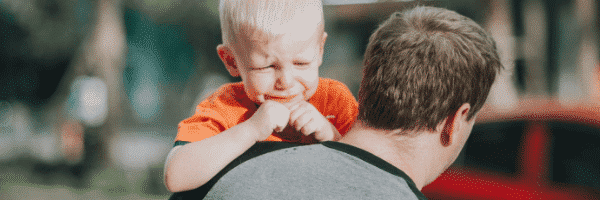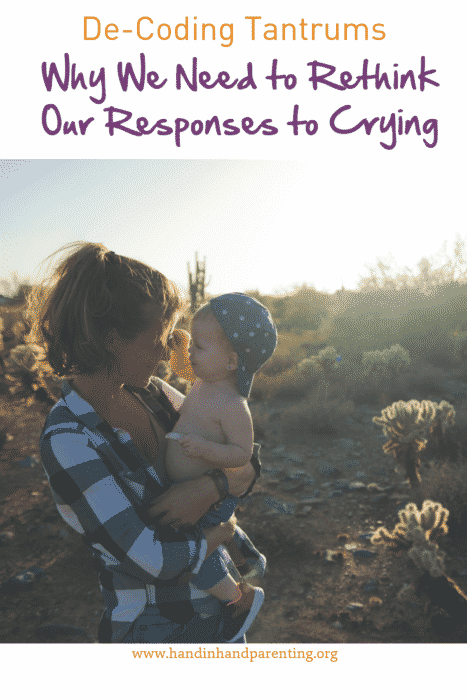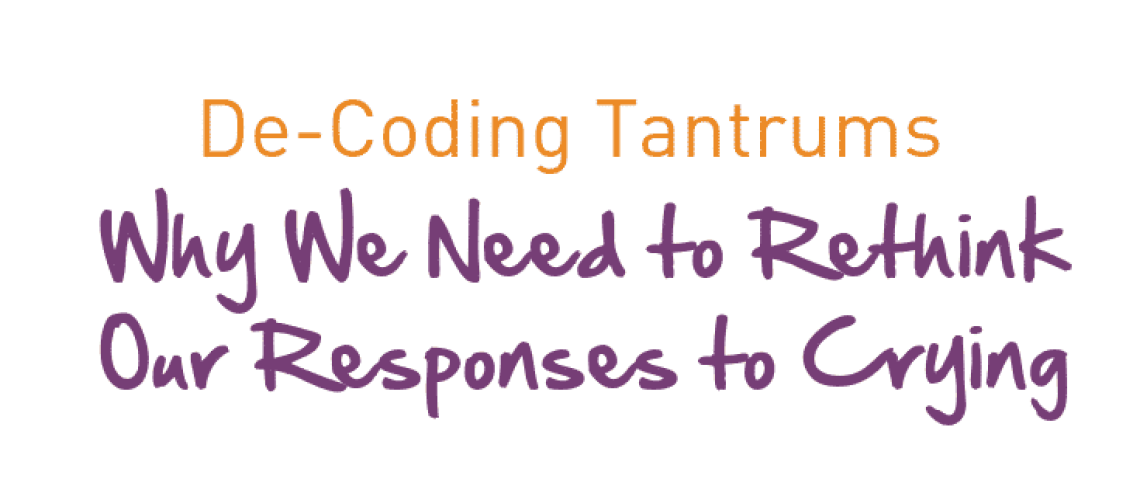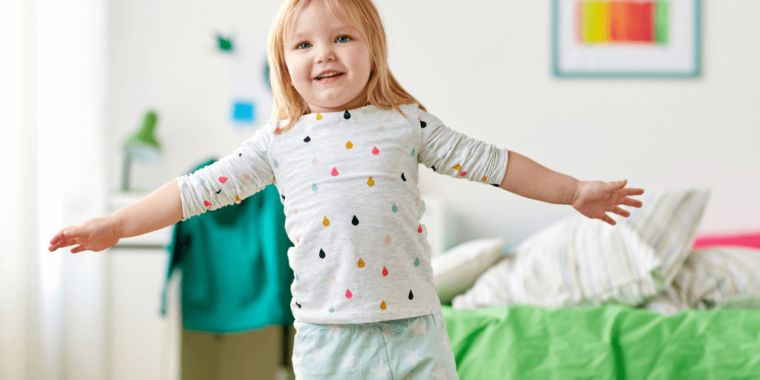
How do you feel when your child has a tantrum?
Imagine we had a frank conversation with a group of small children. They could be from any culture. Any place. We’d ask them what they think about their place in the world, so far.
These are some of the things they might say:
- I depend on others for all my needs, from shelter, food, and hygiene, to affection, guidance and love
- I am small.
- I have very little, or no power.
- I feel vulnerable. The world can be unpredictable, even scary!
- When I was born, I was completely helpless.
- I am trying to figure out how e.v.e.r.y.t.h.i.n.g works. Gravity, language, social cues and rules, cause and effect. Everything is just so new!
- I am learning to walk – literally and figuratively – in this world.
- Everyone around me expects me to function as they do. I am trying hard to do what’s normal.
- Some of my experiences have felt immensely difficult.
- I am trying! Do you see how hard I'm trying?
- Do I matter?
- Am I OK?
- Am I worthy of being loved?
- It's hard being a kid!
It's no wonder they explode!
And they do explode, often. And to us, it looks like they explode for the tiniest of reasons.
Have you noticed?
A little thing goes wrong, and out comes an outpouring of feelings, as if the world were ending!
But the feelings are not just about the little thing that went wrong. The “little thing” is just a pretext, a reminder of some other difficulty. Pick any one from the list above!
The “little thing” is the straw that breaks the camel’s back. And it opens the floodgates of emotion.
Children Aren’t Reason-able When They Tantrum. And That’s OK.
Children are most definitely not “reasonable,” when they are having such big feelings. I mean, they are not reason-able. They are, literally, unable to be reasoned with. That’s why trying to talk sense into them in this emotional moment will not get you results. Kids in the midst of a tantrum are un-reason-able, because their brain, flooded with feelings, shuts down their rational thinking and feelings take over. That's why our children do irrational things and engage in off-track behavior.
Often, they’ll do exactly what you just told them not to do.
Understandably, this can drive us bonkers!
Why Letting Children Tantrum Actually Helps Them Recovery
Because we all want our kids to be happy, and seeing them in distress is extremely taxing on us, we try very hard to avoid that explosion of feelings. After all, this is most likely what happened to us when we were little, and full of feelings ourselves. On top of that, we often get caught up thinking, “What am I doing wrong for my child to be acting like this?”
And so we distract our child, or attempt to fix whatever “little thing” the tantrum seems to be about. We try to reason, lecture, or put an end to the behavior by any means necessary. Sometimes we scold, we shush, or punish, and often we become afraid of appearing to others like we have no control over our kids.
But what if we didn’t?
There is another way!
Crying is natural. As natural as laughing, yelling, trembling, and perspiring.
They are also all ways that our children let out their biggest feelings. Crying, tantruming, trembling, perspiring and even laughing, are inborn mechanisms that, over centuries, our bodies have used to expel feelings from our systems. They are there so that we don't have to carry the weight of them anymore. It’s a system or process that’s actually similar to the one which helps digest our food so elegantly. We do with feelings what we do with food – we take in what nourishes us and then expel what doesn't serve us anymore.
We don’t tend to shut laughing down how we do crying. And in our rush to protect, we shut down a system designed to help us naturally heal. Instead, when we listen, focusing all of our attention and the same deep caring on hearing the cry, we can help our children recover and move on with their day feeling relieved.
Hand in Hand Parenting has seen over decades how children recover and remove emotional blocks when we offer our presence and our deep listening in this very powerful, mostly non-verbal way, as they express these big emotions. It is only more recently that neuroscience has come to back-up these findings too.
How Does Listening This Way Foster Closeness?
We call this type of attentive listening Staylistening, and it’s one of the five tools of our parenting approach. It simply means that when our children are having big feelings, we come close to them, offer warmth, eye contact and a gentle touch and listen to their upset with all our attention, without trying to “fix” whatever seems so wrong. We come towards them with an attitude of trust. We assume that the tantrum they’re having is healthy and that it will pass. And it will! (Although, those 5, 10, 20 minutes, might feel neverending to us!)
Take a closer look at how Staylistening works

When we anchor our children through their emotional storms, they use the warmth and safety of our attention to expel those difficult feelings. Out comes the pain, and in pours our love. Since the reasoning center of the brain is momentarily off, words can't reach our children like body language does in an emotional moment, and so staying close is valuable. Once the big feelings have run their course, as the tears dry and the crying stops, we reach the other side of the storm and we see our children relax. They re-establish eye contact. A sweet child emerges, with behaviors that are less rigid and much more flexible.
Their reasoning abilities are restored, and they feel ready to try again, to cooperate, to follow our guidance. No lecture or punishment needed! There's wisdom after all from the expression, “To have a good cry.” This is what we need to overcome difficulties, big and small. This is how we can heal trauma, expelling from our bodies the leftover feelings from difficult experiences. This is how we gain resilience, anchored by the loving presence of someone who listens with care.
Let’s go back to our imaginary group of young children again and ask them to describe how it feels to be listened to and understood in such a powerful way.
- “I feel safe and protected.”
- “I feel seen and heard.”
- “I feel closer to my caregiver.”
- “I feel my parents understand me, not blame me.”
- “My crying is a natural part of who I am. It’s a way to express myself.”
- “When I have big feelings, I have a safe space to have them be heard.”
- “I feel better after. I want to play. Requests from others seem easier.”
- “I feel supported and connected to those around me.”
Actually, these responses are typical of those children raised with parents and caregivers who actively listen like this. That connection becomes the foundation that allows for them to play and learn freely, with curiosity and peace of mind, about this fascinating world of ours.We see and hear about these breakthrough moments day after day at Hand in Hand Parenting. Here’s a look at how it worked in my own family:
My Daughter Apologizes After Hurtful Words
“One day last week my husband came home early from work, so I asked him to pick the girls up at the bus stop when they got home from school. Upon seeing him (and not me) at pick-up, my seven-year-old became instantly aggressive and off-track, saying hurtful things to my husband, who was showing nothing but happiness to see them earlier in the day.
“She stormed inside the house, loudly stating how everything had been Daddy's fault. I got down to the floor where she was, and as calmly and warmly as I could I asked what was wrong. She went on and on, furiously blaming her dad.
“Knowing that behind aggression there is always fear, and that this off-track behavior did not reflect the respect and love that she has for her dad, I let her express things fully. Then I tried to think what could have been frightening for her upon seeing him. She has always been particularly sensitive to separations, so I said, “You wanted Mommy to pick you up, didn't you?” And as she heard this, she started to cry.
“I thought you had gone again!” she said, between sobs.
“Last month, very unexpectedly, I had to take a short trip to my native country as there had been a death in my family. And then, just after I had returned, I took another short trip that had been planned for months. She and her sister had done really well with my husband when I had been away, as he did a splendid job of nurturing and connecting with them. It has been remarkable to see how close to each other these experiences brought them, and yet she still found it hard to be away from me.
“Seeing him at the bus stop sent her into an emotional alarm, thinking, “Is Mommy gone again?”
“While she cried, I validated how hard having been without me must have felt for her. “You missed Mommy.” I would repeat when her crying would slow down. “You wanted me to pick you up at the bus stop.” And she cried some more as she heard these words. Then she finished crying, and was finally able to make full eye contact with me when she said, “It's hard when anyone from our family goes away.”
“And then she said, unprompted, “Sorry, Daddy, I didn't want to be mean to you.”
“She had a really nice afternoon after that, playing well with her sister, engaging and cooperating beautifully with all that we did together.”
When we respond kindly to our children’s big feelings, seeing them for what they are as indications that something has our child confused or anxious, they are able to move through those feelings, into a place of recovery and light.
The next time your child cries, move in with closeness, but hold back on asking what happened, hold back on comforting with words like, “shush, there there,” or “You’re ok.” Instead try, “I’m right here. It’s hard.”
Let the cry come – and pass – naturally, with your support and loving presence. And then watch as your child bounces back.
Have you tried this approach to crying? What did you notice?
Get More Help with Tantrums and Listening to Them
- What to say during Staylistening
- Understanding Tantrums and how to support them
Marilupe de la Calle is a Hand in Hand Parenting Instructor, and Mexican mother of two marvelous beings. She loves to empower parents as they leave difficulties behind, through in-person and online classes, talks and consultations where she shares, in English and in Spanish, the beauty of the Hand in Hand Parenting approach.

